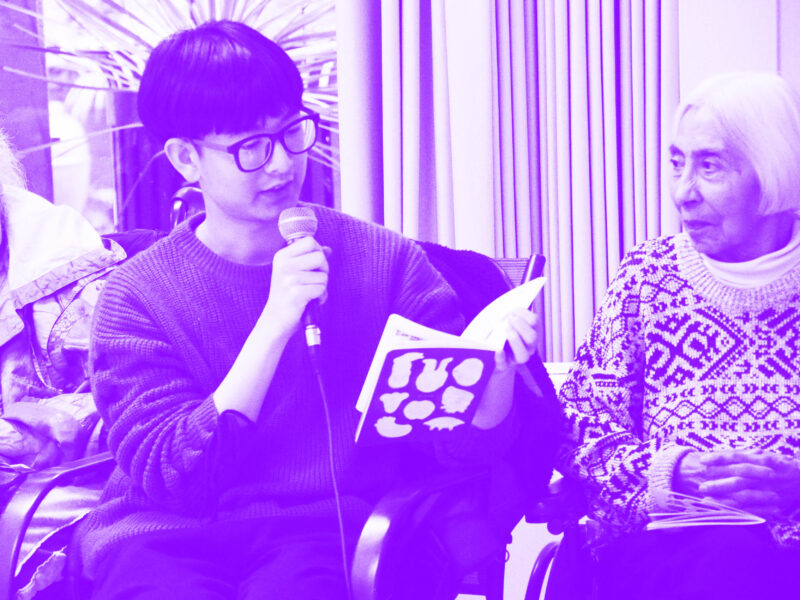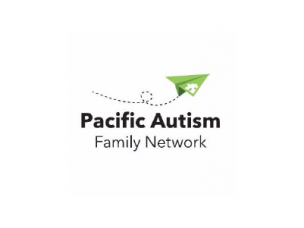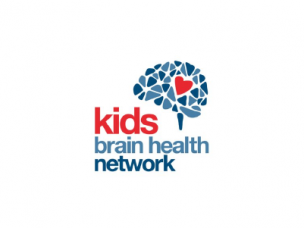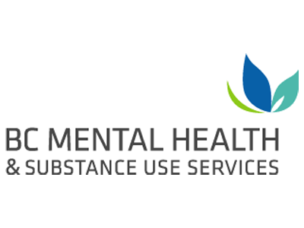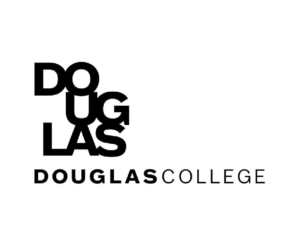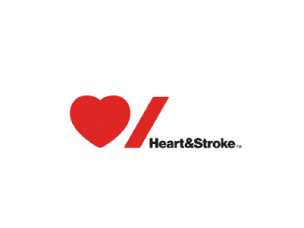Perspectives Program: Storytelling Through Co-Design with People Living in Long-Term Care
How might we create reciprocal benefit through intergenerational exchange and co-design between people living in long-term care and design students?
Perspectives is a course-based program at Emily Carr University, which brings together design students with people living in long-term care for intergenerational exchange and co-design. The program takes place over a 12-week semester and includes 6 one-hour sessions. Each session involves small groups of students and people living in care getting to know one another through creative activities to co-design meaningful outcomes, such as stories and games, to enhance social connection and story-sharing within long-term care. Originally designed as a project for story-gathering and the creation of mini-publications, the project has been adapted and modified over the years to allow for a range of final outcomes through in-person and virtual engagement.
The purpose of Perspectives is to create an infrastructure for meaningful intergenerational exchange and social interaction between students, people living in care, their families, and care home staff through both the process and the co-designed outcomes. This program gives voice to people living in care homes, providing an opportunity for creative and emotional expression, and stimulation of positive memories. The engagement offered through unique and meaningful activities aims to reopen their stories, while acknowledging their value and what they can contribute. Simultaneously, it offers students learning opportunities in storytelling, co-design, and participatory design research.
The program was developed in 2018 through the Health Design Lab, co-led by Jon Hannan (Associate Professor of Communication Design, ECU) and Caylee Raber (Director, Health Design Lab), and has since been run 10 times involving over 150+ people in long-term care and 150+ design students at Emily Carr University.
Knowledge Sharing
With funding from the Centre of Aging and Brain Health Innovation, and in collaboration with the UBC Centre for Research on Personhood in Dementia, we conducted a research study to identify the impact of this program for participants and produced a How-To-Guide to encourage other design programs and communities to participate.
Perspectives, formerly called Zeitgeist, has been featured in a range of articles, design forums, publications, and events:
Article: The perspectives program: creating “connections beyond the years– Educational Gerontology
Article: Zeitgeist publication: a storytelling project with residents and design students – Design For Health
Article: Developing Public Service Hybrid Learning Models Through Community-Engaged Design Education – The 7th International Conference for Design Education Researchers
Article: Designing Conversations: Using Life Stories to Improve Dementia Care – Dementia Lab 2021: Supporting Ability Through Design
Article: Emily Carr University Zeitgeist Program – Dementia Lab 2019: Making Design Work: Engaging with Dementia in Context
Book Chapter: Connecting Design Students with Long-term Care Residents: Driving Social Change Through Curriculum. In Rodgers, P., Design for People Living With Dementia: Design Research for Change Book Series.
News Story: Vancouver design students collaborate with long-term care residents on personalized works – Vancouver Sun
News Story: Positioning Elders as Leaders – Dementia Connections
News Story: ‘Perspectives’ Program Connects Students and People Living in Long-Term Care to Tell the Stories of a Lifetime – Emily Carr University of Art + Design.
2022 Outcomes: https://research.ecuad.ca/healthdesignlab/2022/05/11/perspectives-spring-2022/
How-to-Guide for Design Educators
The intention of this guide is to discuss many of the challenges we faced, provide an academic framework or method story of how we embraced teaching and co-designing in long term care, and give educators an entry point into this area.
The guide starts with the Program Set-up & Getting Started section, which outlines things to consider prior to the implementation of the program. This may include connecting with care homes, logistical considerations, scheduling and recruitment details. It also defines the necessary steps to prepare people living in care homes and students before the start of the scheduled visits when participants meet for the first time. It concludes by touching on key themes and methodologies that inspired and influenced the development of Perspectives.
Written from the perspective of a third year Undergraduate Communication Design class, the Method Story & Breakdown of Visits section covers the three stages of the program, including pedagogical approaches and things to consider when working in the context of long-term care. Utilizing Emily Carr University as the main source of examples for this How to Guide, this section provides more detailed curricular suggestions that are relevant to a Communication Design program; however, we encourage users of the guide to adapt and modify based on the specific needs of their own communities.
For a copy of our How-To-Guide, please visit: https://www.perspectivesprogram.ca/
Project Collaborators
Care Home Partners:
Purdy Pavilion – 2018, 2019, 2022
Haro Park – 2019, 2020
Shorncliffe Intermediate Care Home – 2022
Totem Lodge – 2023
Banfield Pavilion – 2024
Yaletown House – 2024
Research Partners:
Dona Levi – Recreation Therapist, Purdy Pavillion
UBC Centre for Research on Personhood in Dementia – Alison Phinney
Vancouver Coastal Health
Carolyn Kerchoff
Funder:
Centre for Aging and Brain Health Innovation
HDL Project Team:
Jon Hannan
Caylee Raber
Nadia Beyzaei
Research Assistants:
Mariko Sakamoto
Paulina Malcolm
Garima Sood
Srushti Kulkarni
Amen Salami
Emily Ellis
Timeline:
Sep 2018 – Ongoing
